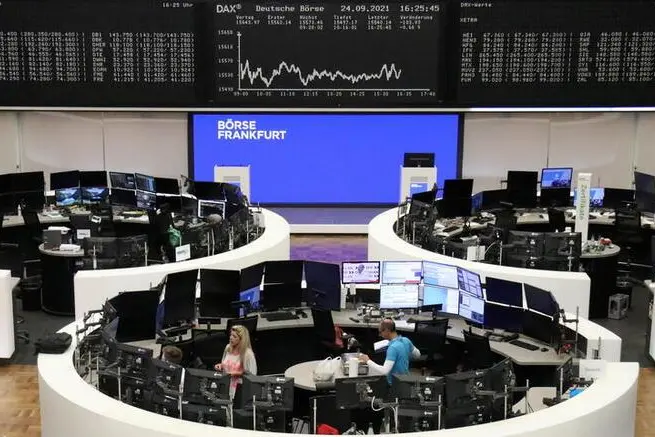PHOTO
LONDON - U.S. stock index futures were indicating a positive start to Wall Street on Friday and world stocks headed for a fourth straight week of gains as investors scaled back views on how far U.S. interest rates and inflation can climb.
Oil lost some shine on Friday but has still recouped some of last week's losses as recession fears ease.
A slight easing of inflation readings drove global stocks higher and capped a rising dollar this week, though a string of Fed speakers dampened expectations of the central bank going slow on further policy tightening.
"Inflation seems to have turned and that was positive, the growth stocks are outperforming again," said Matthias Scheiber, global head of portfolio management for multi-asset solutions at Allspring.
"I wouldn't be surprised if we have a good finish into the weekend," he added, though he said investors remained cautious.
S&P futures gained 0.37% after the S&P index closed down 0.07%.
MSCI's world stock index was steady but was eyeing a 1.7% rise on the week.
Investors bought $7.1 billion in equities in the week to Wednesday, with U.S. growth stocks recording their largest weekly inflow since December 2021, BofA said on Friday.
European stocks hit two-month highs before trimming gains to trade down 0.12%. Britain's FTSE climbed 0.28% and was eyeing two-month highs.
Investors are focused on further inflation data later on Friday, with the publication of the University of Michigan's preliminary survey of consumers for August.
Odds of a 75 basis points U.S. hike in September were as high as 68% earlier in the week, but are now around 34%, where they were a week ago.
However, San Francisco Federal Reserve Bank president Mary Daly said on Thursday that while a 50 basis point rate hike next month "makes sense" given economic data, she'd be open to a bigger hike if necessary. The rate is currently in the 2.25%-2.5% range.
Chicago Fed President Charles Evans and Minneapolis Fed President Neel Kashkari have this week also pointed to rates well above 3% this year.
"Inflation is elevated, so we do not rule out additional tightening," said Steve Ellis, global CIO fixed income at Fidelity International.
"However, markets expect another 100 basis points of hiking this year and this is, in our opinion, excessive."
U.S. 10-year Treasury yields were trading at 2.869% after hitting a near-three-week high of 2.906%.
Benchmark German 10-year government bond yields briefly rose above 1% for the first time in two weeks.
The dollar gained 0.37% against a basket of currencies while the euro lost 0.28% to $1.0287. Sterling dropped 0.76% against the dollar to $1.2120 after data showing British GDP fell 0.6% in June and 0.1% on the quarter.
MSCI's broadest index of Asia-Pacific shares outside Japan hit six-week highs before steadying, and was heading for a weekly gain near 1%.
Hong Kong's Hang Seng index rose 0.46%, but Chinese blue-chip stocks dipped 0.1%.
Japan's Nikkei was the major outlier, surging 2.62% to its highest level since January as markets reopened following a national holiday.
Brent crude was headed for a weekly climb of more than 3%, recouping part of last week's 14% tumble, as recession fears eased.
However, Brent crude futures fell 1.17% to $98.37 a barrel. U.S. West Texas Intermediate crude dropped 1.58% to $92.76.
Spot gold was down 0.1% at $1,787 an ounce.
(Additional reporting by Sam Byford in Tokyo; Editing by Bradley Perrett and Toby Chopra)




















